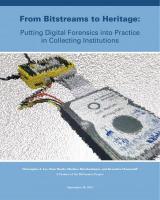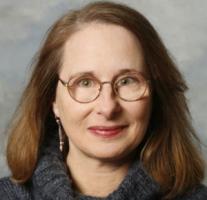The University of Maryland College of Arts and Humanities (ARHU) would like to congratulate the inaugural recipients of the Foxworth Creative Enterprise Initiative (Foxworth Initiative), including Psyche Williams-Forson, associate professor in the Department of American Studies; Ana Patricia Rodriguez, associate professor in the School of Languages, Literatures, and Cultures; and Leigh Wilson Smiley, associate professor of theatre and director of the School of Theatre, Dance, and Performance Studies.
“We are excited and proud to announce our first cohort of Foxworth Creative Enterprise Initiative recipients and courses,” said Bonnie Thornton Dill, dean for the College of Arts and Humanities. "Funding from the Foxworths will enable faculty to further engage students in the lived experiences of people from diverse heritages, traditions and histories, and facilitate their reflections upon the role of the humanities in promoting civic values within the contemporary United States.”
This year’s Foxworth Initiative funds the development of three arts and humanities courses to support advanced teaching and engaged research by scholars whose interests examine community defined issues and whose products and documentation appropriately assess student learning and community engagement.
Courses include a variety of topics like Food, Trauma, and Sustainability; Latina/o Transmigration and Transnationalism; and Community Partnership for the Performing Arts. The Foxworth Initiative also partners each course or “Creative Enterprise Team” with community partners like Prince George’s County Food Equity Council and Casa De Maryland to encourage the inclusion of the arts and humanities disciplines in the application of solutions to pressing issues like food insecurity, climate change, immigration, poverty and racism.
This initiative is made possible by the generosity of two college alumni, Domonique and Ashley Foxworth; Domonique ’04 is a graduate of American Studies, and Ashley ’06 is a proud English alumna. Ultimately the Foxworth Initiative is intended to enrich arts and humanities education and scholarship, and support projects that address enduring or emerging themes central to the arts and humanities or questions arising from other disciplines to which the arts and humanities might speak. For more information, visit www.arhu.umd.edu/foxworth.
INAGURAL FOXWORTH FACULTY COHORT:
 Faculty Lead: Psyche Williams-Forson, Department of American Studies
Faculty Lead: Psyche Williams-Forson, Department of American Studies
Course: AMST 418G: Food, Trauma, and Sustainability
Social Issue: Food insecurity
Approach: Students will work with community partners like the Prince George’s County Food Equity Council to help reduce food vulnerabilities in the county.
Interdisciplinary in focus, students will draw from the fields of American Studies, anthropology, cultural studies and women’s studies to explore issues of food insecurity and urban food deserts. The project will engage these issues in the context of Prince George’s County (e.g. Sheridan Community Garden, Prince George’s County Food Equity Council), and in addition to their hands-on engagement students will learn about issues of food economies, acquisition and distribution circuits.
Community benefit: Communities made up of elderly and migrant populations, identified by partnering organizations like Casa De Maryland, will benefit from food delivery, work in community gardens and will be able to share their life stories with students.
 Faculty Lead: Ana Patricia Rodriguez, Department of Spanish and Portuguese
Faculty Lead: Ana Patricia Rodriguez, Department of Spanish and Portuguese
Course: SPAN 408i: Latina/o Transmigration and Transnationalism
Social Issue: Invisibility of Salvadorian migrant communities
Approach: The Salvadorian diaspora makes up the third largest Latino migrant community in the United States, many of whom reside in the Washington, D.C. metro area. SPAN 408i will bring students into conversation with this community to build and archive a digital storytelling project. The course will explore the complex migration factors that lead to the Salvadorian diaspora. Students will interact with non-English speakers to understand Latin American migration patterns with the members of the community, drawing on the powerful narrative tradition of testimonio, will have an opportunity to challenge their social and political invisibility through these documentation practices. At the end of the course, students and community members will present aspects of this digital storytelling project at the National Museum of the American Indian in Washington, D.C.
Community benefit: UMD students in SPAN 408i will work with alongside the Latino Resource and Justice Center (CARECEN) in their community outreach to members of the Salvadorian diaspora. Together they will build a digital archive of Salvadorian migration, experiences of civil war and unrest, to form part of a larger archive in San Francisco, Washington, D.C. and El Salvador.
 Faculty Lead: Leigh Wilson Smiley, School of Theatre, Dance and Performance Studies
Faculty Lead: Leigh Wilson Smiley, School of Theatre, Dance and Performance Studies
Course: TDPS358P Community Partnership for the Performing Arts
Social Issue: Racism, immigration and adolescent identity
Approach: Students from UMD and the Latin American Youth Center will work together to learn and apply performance skills of listening, voice and working in front of an audience. They will apply these techniques as they collaboratively build a performance piece, which they will use to explore and express a range of social issues that affect them as adolescents and young adults. Inspired by the work of Jerzy Grotowski, Augusto Boal and James Gilligan, among others, they will develop storytelling skills as a means of expression, empowerment and imagination.
Community benefit: Students explore and develop community partnership skills to become trained cultural field workers who will do transformative community based work. Latin American Youth Center.


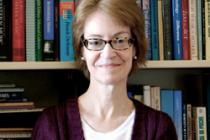
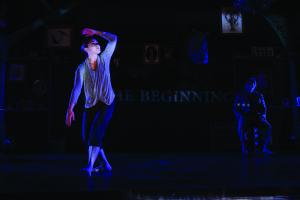
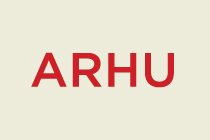
 Faculty Lead: Psyche Williams-Forson, Department of American Studies
Faculty Lead: Psyche Williams-Forson, Department of American Studies Faculty Lead: Ana Patricia Rodriguez, Department of Spanish and Portuguese
Faculty Lead: Ana Patricia Rodriguez, Department of Spanish and Portuguese  Faculty Lead: Leigh Wilson Smiley, School of Theatre, Dance and Performance Studies
Faculty Lead: Leigh Wilson Smiley, School of Theatre, Dance and Performance Studies